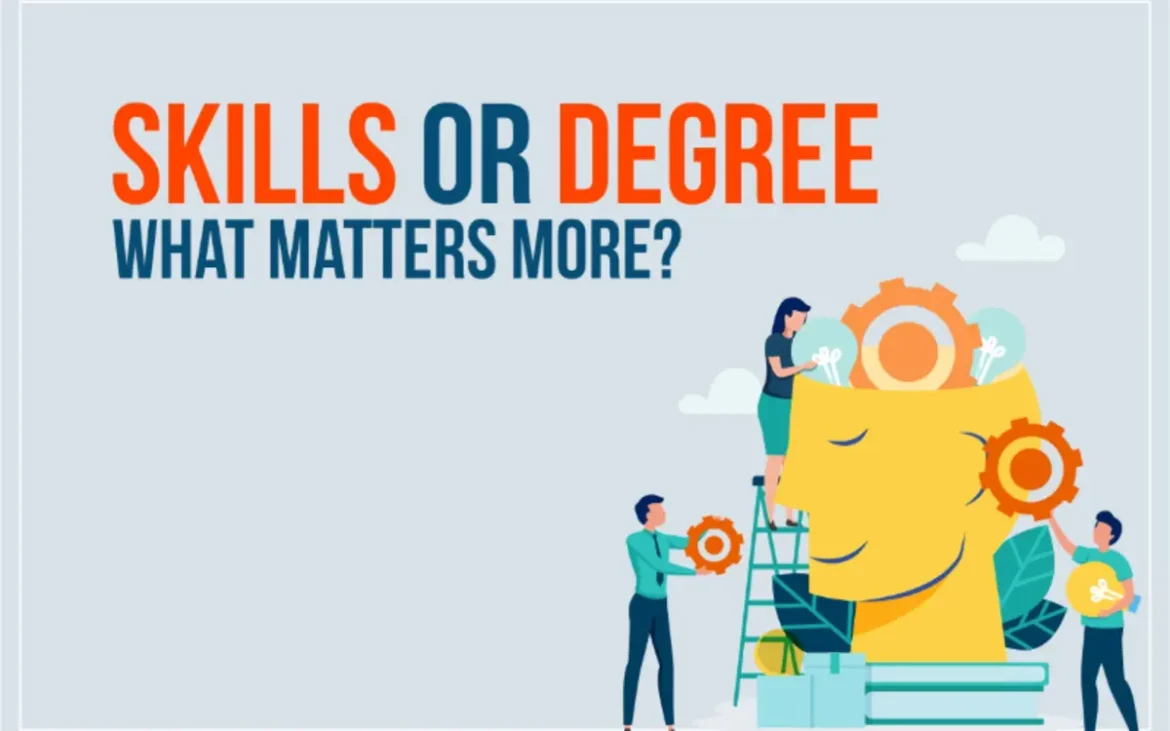In today’s fast-paced world, the age-old debate between skills and degrees has evolved into a powerful conversation on what truly leads to career success. While degrees have long been seen as the ultimate ticket to landing a job, skills are now making a bold statement. So, which one really holds the key to your future?
The Traditional Degree: The Old Standard
For decades, earning a degree was considered the gold standard, symbolizing knowledge, discipline, and a structured educational journey. Degrees opened doors to stable jobs and promotions, especially in fields like medicine, law, engineering, and academia, where formal education is essential. While degrees offer in-depth theoretical understanding and remain indispensable in certain industries, the job market’s evolving demands now prioritize flexible, adaptable, and hands-on skills.
Skills: The New Job Market Currency
Skills have become the new currency in the job market, especially in tech fields like software development, data science, and digital marketing. Employers now prioritize practical skills over formal education. Portfolios and certifications often outweigh degrees. Online platforms and coding boot camps offer cost-effective ways to acquire job-ready skills. As industries evolve, employers seek talent that can adapt quickly and perform tasks efficiently, making hands-on skills—like coding, design, or remote team management—highly valued.
The Best of Both Worlds: Combining Skills and Degrees
While skills are king in many sectors, that doesn’t mean degrees have lost their relevance. The best path often lies in a mix-and-match approach — a combination of formal education and hands-on, job-ready skills.
- Foundational Knowledge + Specialized Expertise: A degree can give you the foundational knowledge and critical thinking abilities necessary for long-term success, while skills allow you to specialize and stay ahead in fast-paced industries.
- Flexibility and Marketability: Having a degree gives you credibility and can open doors to a broader range of jobs. But coupling that degree with relevant, industry-specific skills — be it coding, project management, or digital marketing — enhances your marketability and makes you stand out in the crowd.
- Career Resilience: Degrees are often seen as a long-term investment in your career, but skills allow you to pivot quickly. A combination of both gives you the adaptability to change industries, evolve with the times, and stay competitive.
The Reality Check: What Employers Are Saying
In today’s job market, many leading companies — including Google, Apple, and IBM — no longer require a degree for certain positions. Instead, they look for practical experience and the right skill set. However, this shift doesn’t mean degrees are obsolete; it simply means that skills have become a key factor in hiring decisions. The need for continuous learning and development has never been higher.
Interesting Read
Conclusion: Choose What Works for You
The reality is clear: degrees and skills aren’t in competition. They complement each other. Degrees give you credibility and open doors, while skills demonstrate your ability to make an impact immediately. In an ideal world, you don’t have to choose one over the other — you can use both to fuel your career journey.
So, whether you’re just starting out or looking to shift careers, focus on gaining the right mix: a degree for depth and credentials, and skills for real-world applications and flexibility. Together, they form a powerhouse that can take you to the next level.


